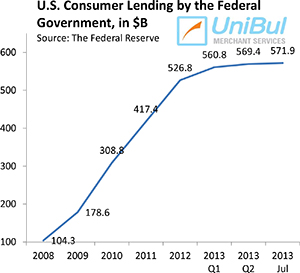Problem Solved: Under-21s Get Older Students to Co-Sign their Credit Cards

It didn’t take long at all! Via the Denver Post we learn that college students under the age of 21 have found a way around the recently enacted provision of the new CARD Act, which makes it much harder for them to open credit card accounts. The solution? Find an older student to co-sign for you.
Under the new rules, issuers cannot approve the credit card application of anyone under the age of 21, unless they can prove that they have the means to pay back the debt. If that’s not an option, the youngster would have to find an older co-signer.
Typically, the first co-signer choice would be a parent. Many parents see this as an opportunity to help their youngster build credit history and feel confident enough that the card would be used responsibly. If all goes well, once the kid turns 21, he or she will open their own card and the joint account can be safely closed.
However, there is a different scenario, under which the student runs up the credit line until it gets out of control. This is often a well-founded concern and the problem is that it not only destroys the youngster’s credit history, but it also damages the co-signer’s.
So many parents prefer to provide their kids with safer payment options, including debit cards and prepaid cards. While neither card helps build the child’s credit history, there can be no negative consequences either, as the damage is limited to the deposited amount.
Additionally, as FICO told us, more Americans than ever have sub-prime credit scores, making them unqualified co-signers. In the words of Estevan Torres, a 20-year-old graphic arts student at Metropolitan State College of Denver:
“I don’t have bad credit, but I can’t get a card because my parents have the bad credit,” he says. “For them to co-sign for me makes it guaranteed I won’t get a card, so I’m thinking of asking one of my friends.”
Yet, credit cards have proved irresistible and perhaps the newly imposed limits have added to their allure, forcing students under 21 to get creative. And a solution was promptly discovered. All that was needed was to enlist the help of older students. Some of them reportedly charged a fee for the service.
Now, this is an unfortunate side effect of the new regulations and many co-signers will undoubtedly live to regret their actions, but it is unlikely that the practice will reach epidemic proportions. Moreover, a stricter law would have punished those youngsters who would use credit responsibly. Although flawed, the law does place substantial hurdles for youngsters to open credit cards, without closing the door shut.
Image credit: Sevenastrals.blogspot.com.

